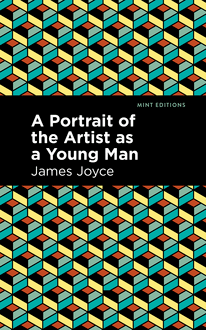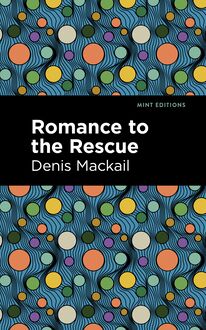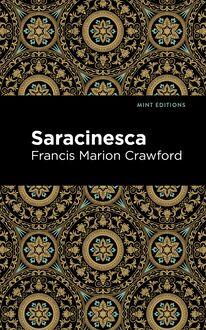-
 Univers
Univers
-
 Ebooks
Ebooks
-
 Livres audio
Livres audio
-
 Presse
Presse
-
 Podcasts
Podcasts
-
 BD
BD
-
 Documents
Documents
-
- Cours
- Révisions
- Ressources pédagogiques
- Sciences de l’éducation
- Manuels scolaires
- Langues
- Travaux de classe
- Annales de BEP
- Etudes supérieures
- Maternelle et primaire
- Fiches de lecture
- Orientation scolaire
- Méthodologie
- Corrigés de devoir
- Annales d’examens et concours
- Annales du bac
- Annales du brevet
- Rapports de stage
La lecture à portée de main
Vous pourrez modifier la taille du texte de cet ouvrage
Découvre YouScribe en t'inscrivant gratuitement
Je m'inscrisDécouvre YouScribe en t'inscrivant gratuitement
Je m'inscrisEn savoir plus
Vous pourrez modifier la taille du texte de cet ouvrage
En savoir plus

Description
Peter Whiffle (1922) is a novel by Carl Van Vechten. Framing himself as his character’s literary executor, Van Vechten provides a satirical self portrait of his unusual life in the arts through the lens of a man whose sole gift is to identify and move with the avant-garde. Peter Whiffle is a writer who never writes. Throughout his travels, he claims to be researching for an important work of literature but mostly provides humorous portraits of some of the greatest artists, dancers, and writers of his time. In this way, he proves himself much more of a mirror than a window—like Van Vechten likely sensed of his own writing, Whiffle is a man who reflects the success and genius of others much more than he offers his own. Travelling between New York City and Europe, Whiffle becomes a figure who defines his generation through keen wit and tongue-in-cheek wisdom, a tour guide to a vast land of cultural creation and bohemian excess. Peter Whiffle, Van Vechten’s debut novel, is a fascinating work of fiction from a man who was always one step ahead of the rest. With a beautifully designed cover and professionally typeset manuscript, this edition of Carl Van Vechten’s Peter Whiffle is a classic of American literature reimagined for modern readers.
Sujets
Informations
| Publié par | Mint Editions |
| Date de parution | 21 juin 2021 |
| Nombre de lectures | 0 |
| EAN13 | 9781513287287 |
| Langue | English |
Informations légales : prix de location à la page 0,0450€. Cette information est donnée uniquement à titre indicatif conformément à la législation en vigueur.
Extrait
Peter Whiffle
His Life and Works
Carl Van Vechten
Peter Whiffle: His Life and Works was first published in 1922.
This edition published by Mint Editions 2021.
ISBN 9781513282268 | E-ISBN 9781513287287
Published by Mint Editions®
minteditionbooks.com
Publishing Director: Jennifer Newens
Design & Production: Rachel Lopez Metzger
Project Manager: Micaela Clark
Typesetting: Westchester Publishing Services
To the memory of
My Mother,
Ada Amanda Fitch Van Vechten
“‘Tingling is the test,’ said Babbalanja, ‘Yoomy, did you tingle, when that song was composing?’”
“‘All over, Babbalanja.’”
H ERMAN M ELVILLE : Mardi
“We work in the dark—we do what we can—we give what we have. Our doubt is our passion, and our passion is our task. The rest is the madness of art.”
D ENCOMBE : The Middle Years
“Les existences les plus belles sont peut- ê tre celles qui ont subi tous les extr ê mes, qui ont travers é toutes les temp é ratures, rencontr é toutes les sensations excessives et tous les sentiments contradictoires.”
R EMY DE G OURMONT : Le Chat de Mis è re
“The man who satisfies a ceaseless intellectual curiosity probably squeezes more out of life in the long run than any one else.”
E DMUND G OSSE : Books on the Table
“O mother of the hills, forgive our towers;
O mother of the clouds, forgive our dreams.”
E DWIN E LLIS
C ONTENTS P REFACE I II III IV V VI VII VIII IX X XI
P REFACE
S o few people were acquainted with Peter Whiffle that the announcement, on that page of the New York Times consecrated to wedding, birth, and obituary notices, of his death in New York on December 15, 1919, awakened no comment. Those of my friends who knew something of the relationship between Peter and myself, probably did not see the slender paragraph at all. At any rate none of them mentioned it, save, of course, Edith Dale, whose interest, in a sense, was as special as my own. Her loss was not so personal, however, nor her grief so deep. It was strange and curious to remember that however infrequently we had met, and the chronicle which follows will give evidence of the comparative infrequency of these meetings, yet some indestructible bond, a firm determining girdle of intimate understanding, over which Time and Space had no power, held us together. I had become to Peter something of a necessity, in that through me he found the proper outlet for his artistic explosions. I was present, indeed, at the bombing of more than one discarded theory. It was under the spell of such apparently trivial and external matters that our friendship developed and, while my own interests often flew in other directions, Peter certainly occupied as important a place in my heart as I did in his, probably, in some respects, more important. Nevertheless, when I received a notification from his lawyer that I had been mentioned in Peter’s will, I was considerably astonished. My astonishment increased when I was informed of the nature of the bequest. Peter Whiffle had appointed me to serve as his literary executor.
Now Peter Whiffle was not, in any accepted sense of the epithet, an author. He had never published a book; he had never, indeed, written a book. In the end he had come to hold a somewhat mystic theory in regard to such matters, which he had only explained to me a few moments before he died. I was, however, aware, more aware than any one else could possibly have been, that from time to time he had been accustomed to take notes. I was as familiar, I suppose, as any one could be, with the trend of his later ideas, and with some of the major incidents in his earlier life he had acquainted me, although, here, I must confess, there were lacun æ in my knowledge. Still, his testamentary request, unless I might choose to accept it in a sense, I am convinced, entirely too flattering to my slender talents, seemed to be inconsistent with the speculative idea which haunted him, at least towards the end of his life. This contradiction and an enlarging sense of the mysterious character of the assignment were somewhat dispelled by a letter, dated June 17, 1917, which, a few days after the reading of the will, his lawyer placed in my hands and which indicated plainly enough that Peter had decided upon my appointment at least two years and a half before he died. This letter not only confirmed the strange clause in the will but also, to some extent, explained it and, as the letter is an essential part of my narrative, I offer it in evidence at once.
Dear Carl—so it read:
I suppose that some day I shall die; people do die. If there has been one set purpose in my life, it has been not to have a purpose. That, you alone, perhaps, understand. You know how I have always hesitated to express myself definitely, you know how I have refrained from writing, and you also know, perhaps, that I can write; indeed, until recently, you thought I was writing, or would write. But I think you realize now what writing has come to mean to me, definition, constant definition, although it is as apparent as anything can be that life, nature, art, whatever one writes about, are fluid and mutable things, perpetually undergoing change and, even when they assume some semblance of permanence, always presenting two or more faces. There are those who are not appalled by these conditions, those who confront them with bravery and even with impertinence. You have been courageous. You have published several books which I have read with varying shades of pleasure, and you have not hesitated to define, or at any rate discuss, even that intangible, invisible, and noisy art called Music.
I have begun many things but nothing have I ever completed. It has always seemed unnecessary or impossible, although at times I have tried to carry a piece of work through. On these occasions a restraining angel has held me firmly back. It might be better if what I have written, what I have said, were permitted to pass into oblivion with me, to become a part of scoriac chaos. It may not mean anything in particular; if it means too much, to that extent I have failed.
Thinking, however, of death, as I sometimes do, I have wondered if, after all, behind the vapoury curtain of my fluctuating purpose, behind the orphic wall of my indecision, there did not lurk some vague shadow of intention. Not on my part, perhaps, but on the part of that being, or that condition, which is reported to be interested in such matters. This doubt, I confess, I owe to you. Sometimes, in those extraordinary moments between sleeping and awakening—and once in the dentist’s chair, after I had taken gas—the knots seemed to unravel, the problem seemed as naked as Istar at the seventh gate. But these moments are difficult, or impossible, to recapture. To recapture them I should have been compelled to invent a new style, a style as capricious and vibratory as the moments themselves. In this, however, as you know, I have failed, while you have succeeded. It is to your success, modest as it may appear to you, that I turn in my dilemma. To come to the point, cannot you explain, make out some kind of case for me, put me on my feet (or in a book), and thereby prove or disprove something? Shameless as I am, it would be inconceivable, absurd, for me to ask you to do this while I am yet living and I have, therefore, put my request into a formal clause in my will. After I am dead, you may search your memory, which I know to be very good, for such examples of our conversations as will best be fitted to illuminate your subject, which I must insist—you, yourself, will understand this, too, sooner or later— is not me at all .
When your book is published, I shall be dead and perhaps unconscious. If, however, as I strongly suspect, some current connects the life to be with the life that is, I can enjoy what you have done. At the best, you may give others a slight intimation of the meaning of inspiration or furnish guideposts, lighthouses, and bell-buoys to the poet who intends to march singing along the highroad or bravely to embark on the ships at sea; at the worst, I have furnished you with a subject for another book, and I am well aware that subjects even for bad books are difficult to light upon.
Salve atque Vale,
Peter
This letter, I may say, astonished me. I think it would astonish anybody. A profound and enveloping melancholy succeeded to this feeling of astonishment. At the time, I was engaged in putting the finishing touches to The Tiger in the House and I postponed meditation on Peter’s affair until that bulky volume could be dispatched to the printer. That happy event fell on March 15, 1920, but my anthology, Lords of The Housetops, next claimed my attention, and then the new edition of Interpreters, for which I had agreed to furnish a new paper, and the writing of this new paper amused me very much, carrying my mind not only far away from cats, which had been occupying it for a twelvemonth, but also away from Peter’s request. At last, Interpreters was ready for the printer, but now the proofs of The Tiger began to come in, and I may say that for the next three months my days were fully occupied in the correction of proofs, for those of Lords of The Housetops and Interpreters were in my garret when the proofs of The Tiger were not. Never have I corrected proofs with so much concentrated attention as that which I devoted to the proofs of The Tiger, and yet there were errors. In regard to some of these, I was not the collaborator. On Page 240, for instance, one may read, There are many females in the novels of Emile Zola. My intention was to have the fourth word read, felines, and so it stood in the final proof, but my ambition to surmount the initial letter of Zola’s Christian name with an acute accent (an ambition I shall forswear on this present page), compelled the printer to reset the line, so that subsequently, when I opened the book at this page, I read with amazement that there are many femal
-
 Univers
Univers
-
 Ebooks
Ebooks
-
 Livres audio
Livres audio
-
 Presse
Presse
-
 Podcasts
Podcasts
-
 BD
BD
-
 Documents
Documents
-
Jeunesse
-
Littérature
-
Ressources professionnelles
-
Santé et bien-être
-
Savoirs
-
Education
-
Loisirs et hobbies
-
Art, musique et cinéma
-
Actualité et débat de société
-
Jeunesse
-
Littérature
-
Ressources professionnelles
-
Santé et bien-être
-
Savoirs
-
Education
-
Loisirs et hobbies
-
Art, musique et cinéma
-
Actualité et débat de société
-
Actualités
-
Lifestyle
-
Presse jeunesse
-
Presse professionnelle
-
Pratique
-
Presse sportive
-
Presse internationale
-
Culture & Médias
-
Action et Aventures
-
Science-fiction et Fantasy
-
Société
-
Jeunesse
-
Littérature
-
Ressources professionnelles
-
Santé et bien-être
-
Savoirs
-
Education
-
Loisirs et hobbies
-
Art, musique et cinéma
-
Actualité et débat de société
- Cours
- Révisions
- Ressources pédagogiques
- Sciences de l’éducation
- Manuels scolaires
- Langues
- Travaux de classe
- Annales de BEP
- Etudes supérieures
- Maternelle et primaire
- Fiches de lecture
- Orientation scolaire
- Méthodologie
- Corrigés de devoir
- Annales d’examens et concours
- Annales du bac
- Annales du brevet
- Rapports de stage




















